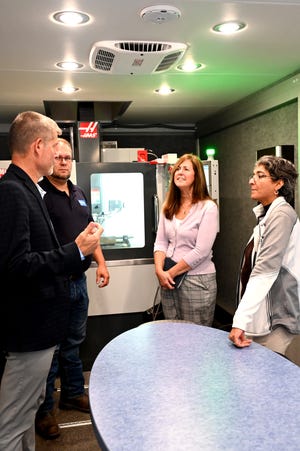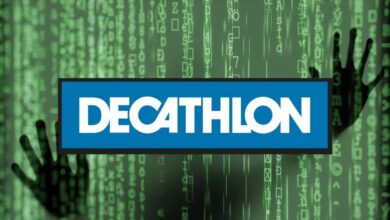Marion Technical College awarded cybersecurity education grant

Marion Technical College will expand cybersecurity education and train more workers for the in-demand field.
A new grant from the National Science Foundation will help bridge the skills gap and establish a skilled cybersecurity workforce to help meet local, regional and nationwide demands.
More:Marion Technical College bucks higher education trends with record enrollment
Marion Tech was awarded this $533,404 to better align curriculum with the NSA Center of Excellence in Cybersecurity. In addition to upgrading hardware, Marion Tech will offer cybersecurity camps starting in summer 2025 to offer free training to teachers, government employees and utility workers as well as students.
“The National Science Foundation grant is a game-changer for our cybersecurity program. We will be providing training on cutting-edge technology to our students, community and local government agencies. Cybersecurity is a constant arms race between bad actors and the good guys; keeping local agencies, teachers, and the community up-to-date with recent trends is essential for the safety of everyone,” said Mike White, associate dean of technical programs at Marion Tech.

With new equipment, the Marion Tech mobile lab will bring cybersecurity awareness and training events around the region. In addition, Marion Tech will develop three new cybersecurity courses and certifications. These include stackable certificate options, where students can tailor their learning to their career goals and put their learning to use in their careers quickly.
More:Ohio State-Marion salutes the first graduates of engineering technology program
“In an era where cyber threats are increasingly sophisticated and widespread, ‘leveling up’ our cybersecurity education helps prevent cyberattacks before they happen, saving time and money that would be spent fixing things afterward,” said Christy Culver, assistant program administrator for business and information technologies.
At upcoming professional development boot camps, high school instructors, local government employees and public utility workers will learn and implement cybersecurity protocols and best practices for their fields.
“The planned professional development opportunities for high school instructors, local government, and public utility employees will raise the overall standard of cybersecurity education in the region, creating a ripple effect of improved cybersecurity practices,” said Culver, one of the grant’s authors.
In addition, Marion Tech will reach out to underrepresented students in cybersecurity, including rural students, economically disadvantaged individuals and women with the goal of helping. This initiative aims to increase program enrollment among these groups by 25%.
Cybersecurity jobs will grow by 32% over the next 10 years, according to the U.S. Bureau of Labor Statistics.
“Cyberattacks threaten all of us — with attacks on health care, schools, utilities, financial institutions and businesses,” said Dr. Ryan McCall, president of Marion Tech. “This initiative represents a significant step forward in addressing the critical need for cybersecurity expertise in our community and beyond. By expanding our educational offerings and reaching out to underrepresented groups, we aim to cultivate a diverse and skilled cybersecurity workforce capable of meeting these challenges.”




